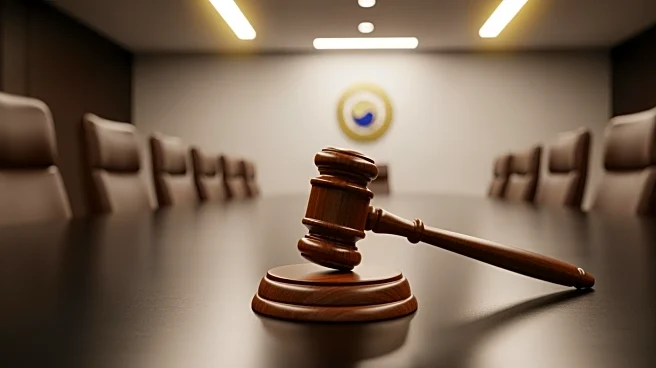What's Happening?
The United States, Saudi Arabia, and Turkey have endorsed a United Nations draft resolution that aims to offer a path to Palestinian statehood. This development comes amid changes to an American proposal
concerning Gaza, which has garnered support from several Arab nations. The resolution is seen as a significant diplomatic effort to address the longstanding Israeli-Palestinian conflict. Additionally, Russia has presented an alternative proposal, indicating differing international approaches to the issue. U.S. Special Envoy Steven Witkoff is scheduled to meet with Hamas' top negotiator, Khalil al-Hayya, who recently survived an Israeli strike in Doha.
Why It's Important?
The endorsement of the UN draft resolution by major international players like the U.S. and Saudi Arabia marks a pivotal moment in the Israeli-Palestinian conflict. It reflects a concerted effort to establish a framework for Palestinian statehood, which could potentially lead to a more stable and peaceful Middle East. The involvement of Russia with a counter-proposal highlights the geopolitical complexities and varying interests in the region. The resolution's success or failure could significantly impact U.S. foreign policy and its relations with Middle Eastern countries, as well as influence the dynamics of international diplomacy concerning the conflict.
What's Next?
The next steps involve diplomatic negotiations and discussions among the involved parties, including the meeting between U.S. Special Envoy Steven Witkoff and Hamas negotiator Khalil al-Hayya. The outcome of these talks could shape the future of the resolution and its implementation. The international community will be closely monitoring these developments, as they could lead to shifts in alliances and strategies in the region. The response from Israel and other stakeholders will be crucial in determining the resolution's viability and the potential for progress towards Palestinian statehood.
Beyond the Headlines
The endorsement of the UN draft resolution could have deeper implications for the Israeli-Palestinian conflict, potentially altering the balance of power and influence in the region. It raises questions about the role of international organizations in mediating long-standing conflicts and the effectiveness of diplomatic resolutions. The involvement of multiple countries suggests a broader interest in stabilizing the region, which could lead to increased international cooperation or further tensions, depending on the resolution's reception and implementation.








